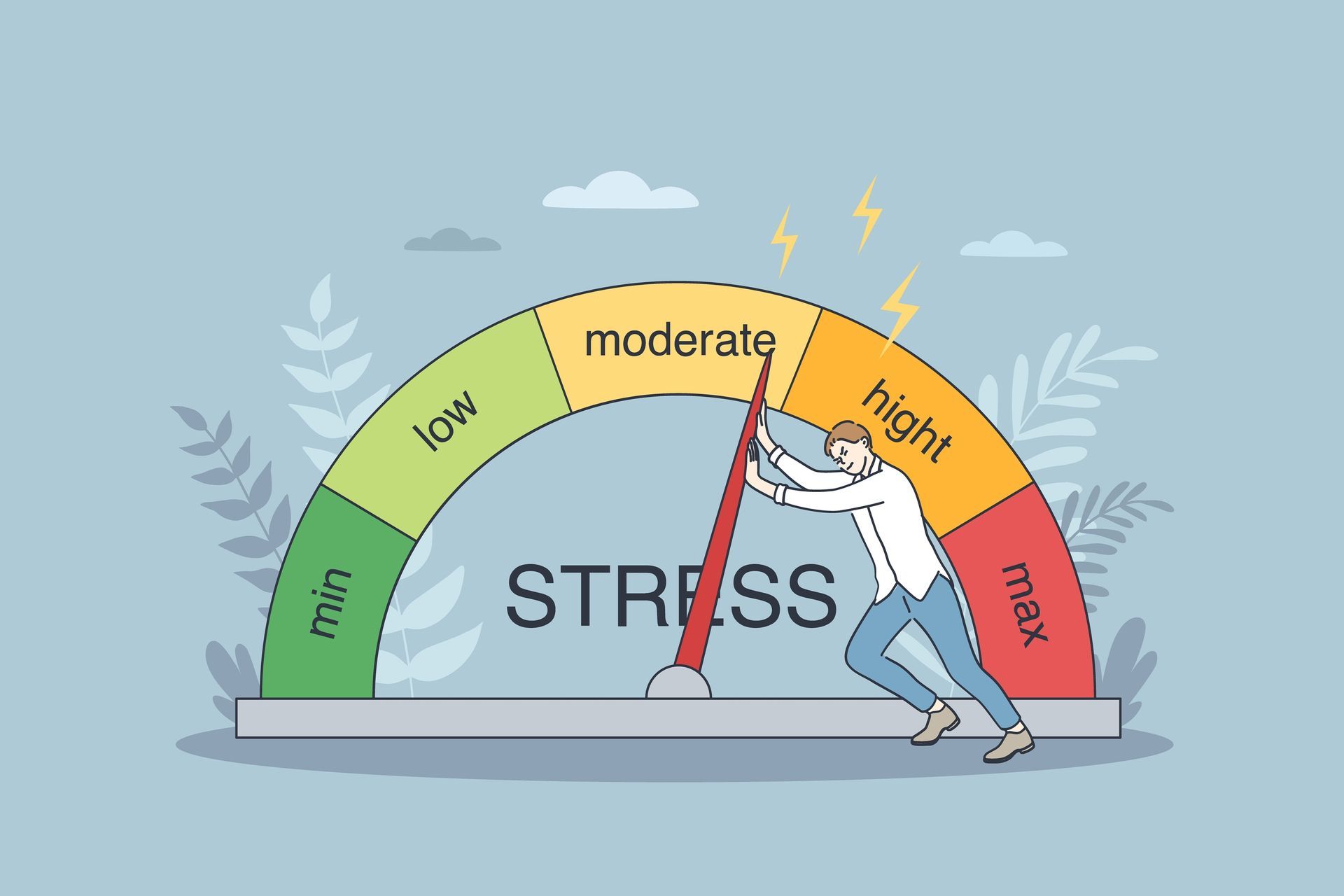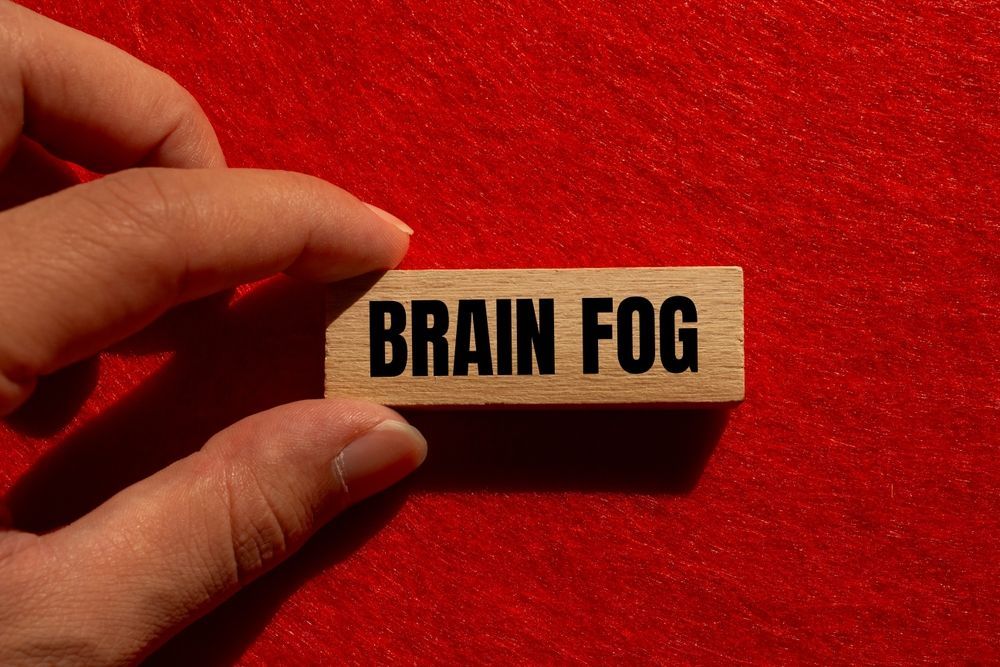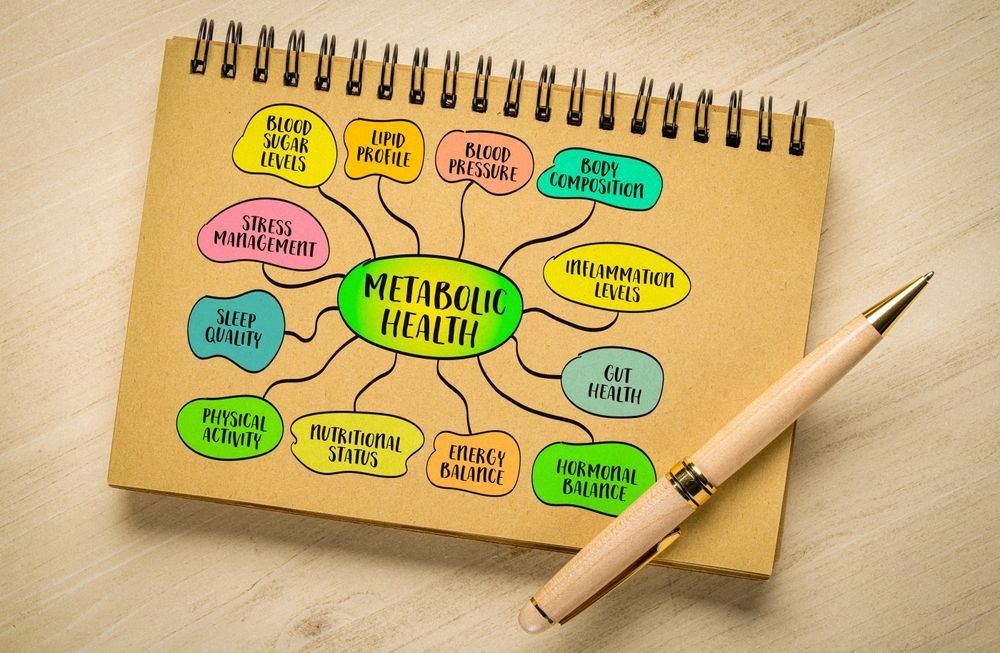How IV Therapy Helps Combat Stress and Anxiety

Understanding Stress and Anxiety
Stress and anxiety are common experiences in today's fast-paced world. They are natural reactions to challenging situations, but when they become overwhelming, they can affect mental and physical health.
Stress is often triggered by a range of factors, including work pressures, relationship issues, and financial concerns. Anxiety, on the other hand, can manifest as a persistent feeling of dread or apprehension, sometimes even without a clear cause.
The Impact of Stress and Anxiety on Health
The effects of stress and anxiety extend beyond feelings of worry and unease; they can significantly impact overall health. Chronic stress can lead to various health problems, such as cardiovascular issues, weakened immune response, and digestive disorders.
Anxiety can contribute to sleep disturbances, escalated heart rates, and even chronic pain conditions. Therefore, addressing these issues is crucial for maintaining a healthy lifestyle.
Common Causes of Stress and Anxiety
Understanding the sources of stress and anxiety is essential for effective management. Some of the common triggers include:
- Work-related pressures
- Relationship challenges
- Health concerns
- Financial difficulties
- Life transitions, such as moving or starting a new job
Awareness of these triggers can empower individuals to take proactive steps towards managing their stress and anxiety levels.
An Introduction to IV Therapy
Intravenous (IV) therapy involves administering fluids directly into the bloodstream through a vein. While traditionally used in medical settings for hydration and medication delivery, IV therapy is gaining attention for its potential benefits in wellness and recovery.
The process is generally quick and can be tailored to address specific nutritional deficiencies or health issues. This personalized approach is one reason why many are turning to IV therapy as a viable option for combating stress and anxiety.
The Science Behind IV Therapy
The effectiveness of IV therapy lies in its ability to deliver high concentrations of nutrients directly into the bloodstream. This method bypasses the digestive system, allowing for swift absorption and utilization by the body.
Nutrients delivered via IV therapy can help support various bodily functions, promoting relaxation, improving mood, and enhancing overall wellness. As such, it may have a significant role in alleviating the symptoms of stress and anxiety.
Different Types of IV Therapy
There are several types of IV therapy, each designed to serve different health needs. Common types include:
- Hydration therapy: Aimed at replenishing fluids and electrolytes.
- Nutrient therapy: Delivering vitamins and minerals that support mental health.
- Detoxification therapy: Aiding the body in eliminating toxins.
- Immune support therapy: Strengthening the immune system to prevent illness.
Each type of therapy can be customized based on individual requirements, addressing specific stress and anxiety concerns effectively.
The Connection Between IV Therapy and Stress Relief
IV therapy has been praised for its potential to offer both short-term and long-term relief from stress. By delivering essential nutrients and hydration, it can help restore balance to the body and mind.
Many individuals report feeling immediate benefits after a session, which can lead to improved mental clarity and reduced anxiety levels.
How IV Therapy Works to Reduce Stress
IV therapy works on several mechanisms to promote stress relief. Firstly, nutrient-rich solutions can help replenish deficiencies that may be contributing to stress and anxiety. Secondly, the hydration provided through IV therapy can combat fatigue, a common consequence of prolonged stress.
Moreover, the act of receiving therapy in a calming environment can itself be a soothing experience, promoting relaxation and tranquility.
The Role of Nutrients in IV Therapy for Stress Relief
Various essential nutrients play a pivotal role in managing stress and anxiety. Key nutrients often included in IV therapy formulations are:
- Vitamin C: Known for its antioxidant properties and role in mood regulation.
- Magnesium: Supports relaxation and reduces muscle tension.
- B Vitamins: Essential for energy production and stress management.
- Amino acids: Building blocks of neurotransmitters, they play a role in mood stabilization.
By ensuring the body has adequate levels of these nutrients, IV therapy can aid in alleviating the symptoms associated with stress and anxiety.
Benefits of IV Therapy for Anxiety
IV therapy offers unique advantages for individuals struggling with anxiety. Many find that it delivers rapid results, which can be crucial when faced with acute anxiety episodes.
Additionally, it promotes an overall sense of well-being, contributing to improved mental health over time.
Immediate Effects of IV Therapy on Anxiety
One of the most appealing aspects of IV therapy is the immediacy of its effects. Some individuals report feeling more relaxed and centered shortly after receiving therapy. This swift response can be especially beneficial for those experiencing anxiety spikes.
The immediate infusion of hydration and nutrients can act as a quick reset, relieving some of the physical symptoms of anxiety, such as tension and stress.
Long-Term Benefits of IV Therapy for Anxiety
While immediate relief is a significant advantage, the long-term benefits of IV therapy should not be overlooked. Regular treatments can help establish a more stable emotional baseline, reducing the frequency and intensity of anxiety episodes.
Moreover, a consistent intake of essential nutrients aids in reinforcing the body's resilience against stressors, ultimately fostering a healthier mental state over time.
Safety and Considerations of IV Therapy
As with any treatment, it's essential to consider the safety of IV therapy. While it is generally considered safe for most individuals, it should only be administered by qualified professionals in a controlled environment.
Understanding potential side effects and contraindications is crucial for anyone considering IV therapy as a treatment for stress and anxiety.
Potential Side Effects of IV Therapy
Although rare, possible side effects of IV therapy may include:
- Brusing or swelling at the injection site
- Infection risk at the insertion point
- Allergic reactions to certain nutrients
- Fluids overload in those with specific medical conditions
These effects highlight the importance of consulting with a healthcare provider before undergoing therapy to ensure it aligns with individual health needs.
Who Should Consider IV Therapy for Stress and Anxiety
IV therapy may be a valuable option for individuals experiencing chronic stress and anxiety, particularly if other methods have been ineffective. Additionally, those with busy lifestyles may benefit from the quick and efficient delivery of treatment.
However, it is essential for anyone considering this therapy to consult their healthcare professionals to discuss its appropriateness based on their personal health history and current symptoms. This ensures a tailored and safe approach to managing stress and anxiety through IV therapy.










